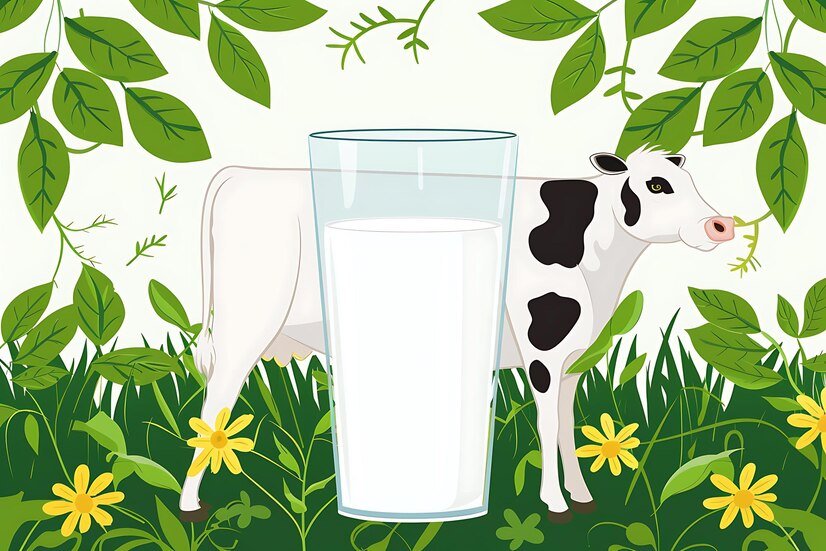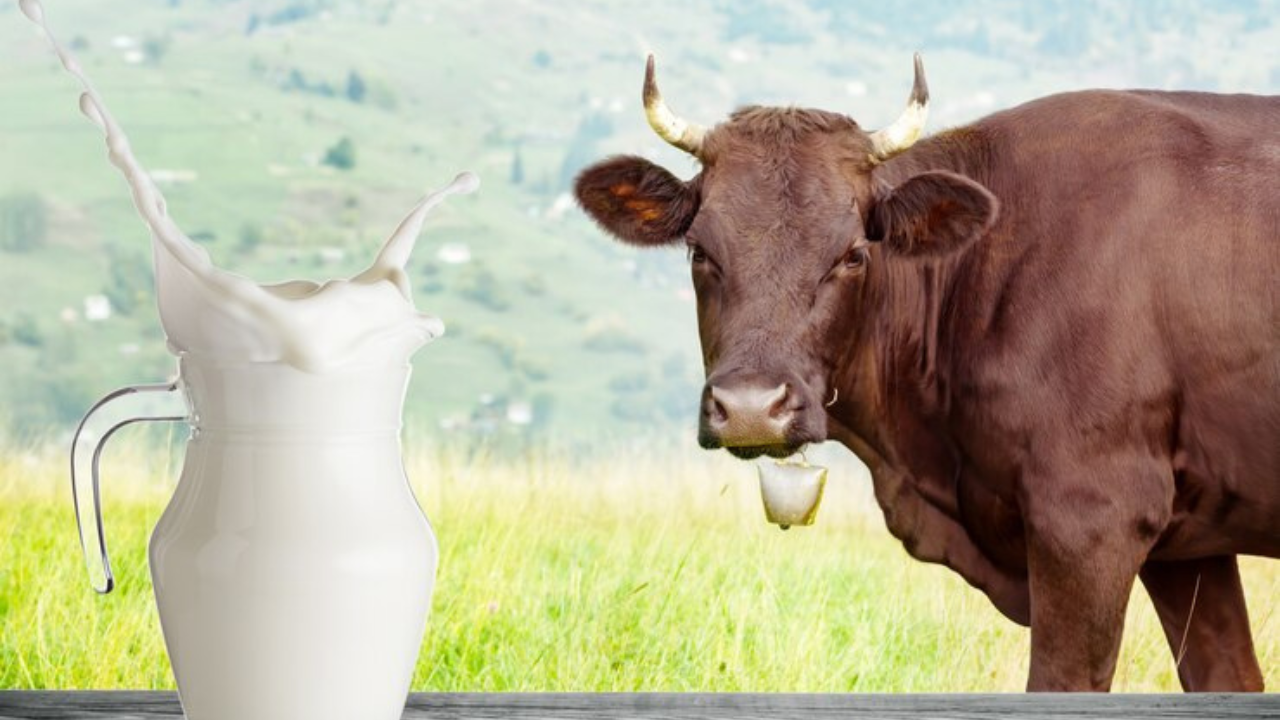Buffalo milk is an increasingly popular choice for many health-conscious individuals and families. It offers a range of benefits that set it apart from cow’s milk and other dairy alternatives. In this detailed guide, we explore the nutritional value, health benefits, and frequently asked questions about buffalo milk to help you make an informed decision.
What is Buffalo Milk?

Buffalo milk is a type of milk produced by domestic water buffaloes, primarily found in South Asia, Southeast Asia, and parts of Italy and Egypt. It is known for its rich, creamy texture and high nutritional value. Buffalo milk has been a staple in many cultures for centuries due to its unique taste and numerous health benefits. It contains more protein, fat, and calories compared to cow’s milk, making it an excellent source of nutrition. Additionally, buffalo milk is rich in vitamins and minerals, including calcium, magnesium, and phosphorus, and has less lactose, which can be beneficial for those with mild lactose intolerance.
Nutritional Value of Buffalo Milk

Buffalo milk is packed with essential nutrients. Here is a detailed breakdown:
- Protein: Buffalo milk contains approximately 10-11% more protein than cow’s milk. This makes it an excellent source for building and repairing body tissues.
- Fat: With around 7-8% fat content, buffalo milk is creamier than cow’s milk. The fat in buffalo milk is also rich in healthy unsaturated fats.
- Calories: Higher fat content means buffalo milk has more calories, making it a good choice for those needing extra energy.
- Vitamins and Minerals: Buffalo milk is rich in vitamins A, B2, B3, and C. It also contains high levels of calcium, magnesium, potassium, and phosphorus.
- Lactose: Buffalo milk contains less lactose than cow’s milk, making it a potential alternative for those with mild lactose intolerance.
Health Benefits of Buffalo Milk

- Rich Source of Calcium and Phosphorus Buffalo milk is an excellent source of calcium and phosphorus, essential for strong bones and teeth. Regular consumption can help prevent osteoporosis and improve overall bone health.
- Higher Protein Content The higher protein content in buffalo milk aids in muscle growth and repair, making it a valuable addition to the diet of athletes and bodybuilders. It also helps in maintaining a healthy immune system.
- Boosts Cardiovascular Health Buffalo milk contains a higher amount of conjugated linoleic acid (CLA) and omega-3 fatty acids, which are known to improve heart health by reducing bad cholesterol levels and increasing good cholesterol.
- Enhances Immune Function Rich in antioxidants and vitamins, buffalo milk can boost the immune system, helping the body fight off infections and diseases more effectively.
- Better Digestion The lower lactose content and the presence of beneficial probiotics in buffalo milk can aid in better digestion and improve gut health. This makes it a suitable option for people with mild lactose intolerance.
- Skin and Hair Health The high levels of vitamin A and essential fatty acids in buffalo milk contribute to better skin and hair health. Regular consumption can lead to a glowing complexion and stronger, shinier hair.
Comparing Buffalo Milk to Cow’s Milk

While both buffalo and cow’s milk offer significant health benefits, there are notable differences that might influence your choice:
- Creaminess and Texture: Buffalo milk is thicker and creamier, making it ideal for dairy products like cheese, yogurt, and ice cream.
- Shelf Life: Due to its higher peroxidase activity, buffalo milk has a longer shelf life than cow’s milk.
- Nutritional Profile: Buffalo milk generally has higher levels of fat, protein, and calories. This can be advantageous for individuals needing a higher energy intake.
How to Incorporate Buffalo Milk into Your Diet
Buffalo milk can be consumed directly or used in various culinary applications. Here are some ideas:
- Drinking: Enjoy a glass of buffalo milk chilled or warm. Its creamy texture makes it a satisfying beverage on its own.
- Cooking: Use buffalo milk in recipes that call for cow’s milk. It can add richness to soups, sauces, and casseroles.
- Baking: Buffalo milk can enhance the flavor and texture of baked goods, from cakes and muffins to bread and pastries.
- Dairy Products: Make your own cheese, yogurt, or ice cream using buffalo milk for a more indulgent taste.
FAQs about Buffalo Milk
1. Is Buffalo Milk Good for Weight Loss?
Buffalo milk is richer in calories and fat than cow’s milk, which might not make it the first choice for weight loss. However, its high protein content can keep you fuller for longer, potentially aiding in weight management.
2. Can Lactose-Intolerant People Drink Buffalo Milk?
Buffalo milk has lower lactose content compared to cow’s milk, making it easier to digest for some lactose-intolerant individuals. However, it still contains lactose, so it may not be suitable for those with severe intolerance.
3. Is Buffalo Milk Better for Making Dairy Products?
Yes, the higher fat content and creaminess of buffalo milk make it excellent for producing rich and flavorful dairy products such as cheese, yogurt, and ice cream.
4. How Does Buffalo Milk Taste Compared to Cow’s Milk?
Buffalo milk has a richer, creamier taste compared to cow’s milk. It is slightly sweeter and has a more pronounced flavor, which many people find more enjoyable.
5. Where Can I Buy Buffalo Milk?
Buffalo milk can be found in specialty grocery stores, health food stores, and markets that cater to ethnic cuisines. It is also available online through various retailers.
6. How Should Buffalo Milk Be Stored?
Buffalo milk should be stored in the refrigerator at a temperature below 4°C (39°F). Due to its higher fat content, it can spoil more quickly if not kept properly chilled.
7. Can Buffalo Milk Cause Allergies?
Like cow’s milk, buffalo milk can cause allergic reactions in individuals with a milk allergy. If you have a known allergy to dairy, it is best to avoid buffalo milk and seek alternative sources of nutrition.
8. What Are the Environmental Impacts of Buffalo Milk Production?
Buffalo farming can have different environmental impacts compared to cow farming. Buffaloes are generally more efficient in converting feed into milk and can graze on less fertile land. However, the environmental impact also depends on farming practices and geographic location.
Conclusion
Buffalo milk offers numerous health benefits, making it a valuable addition to a balanced diet. Its rich nutritional profile, combined with its unique taste and texture, sets it apart from other dairy options. Whether consumed directly or used in various culinary applications, buffalo milk is a versatile and nutritious choice.



